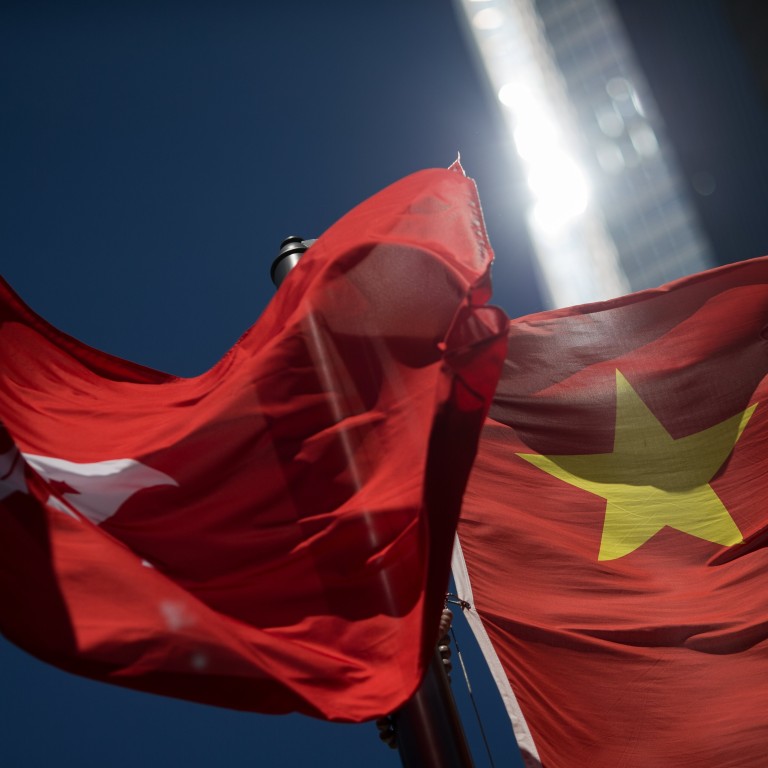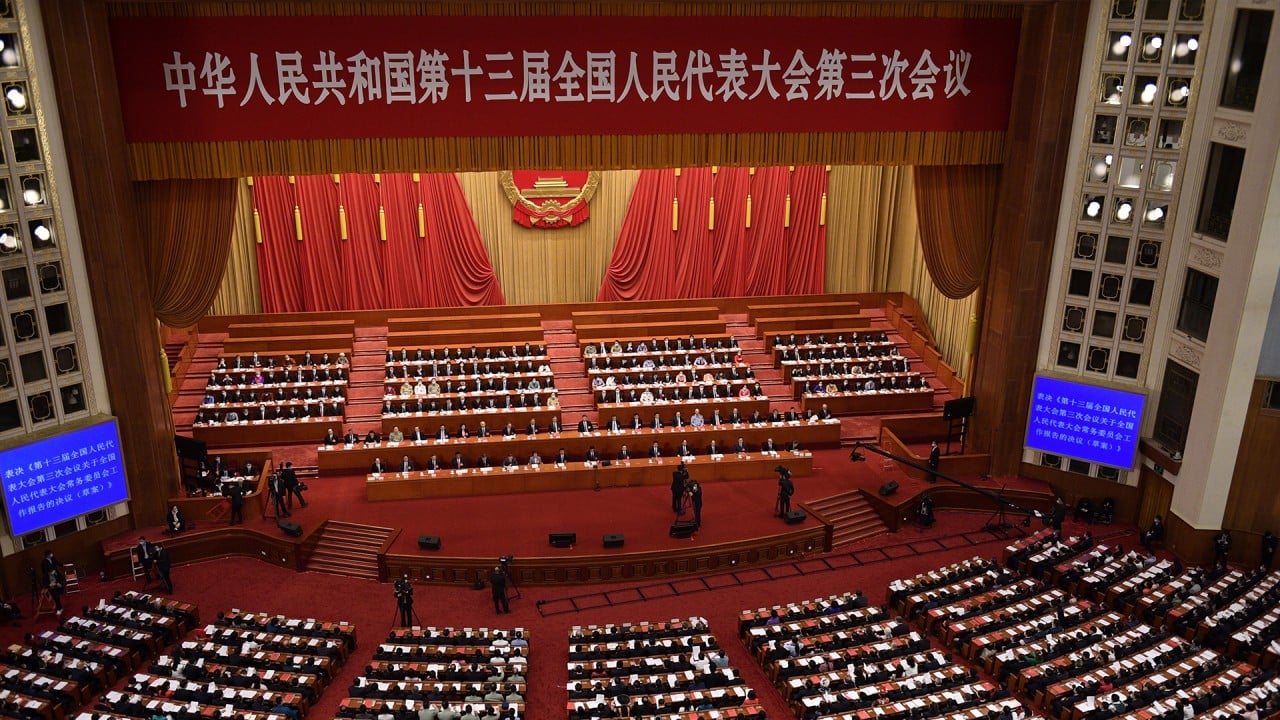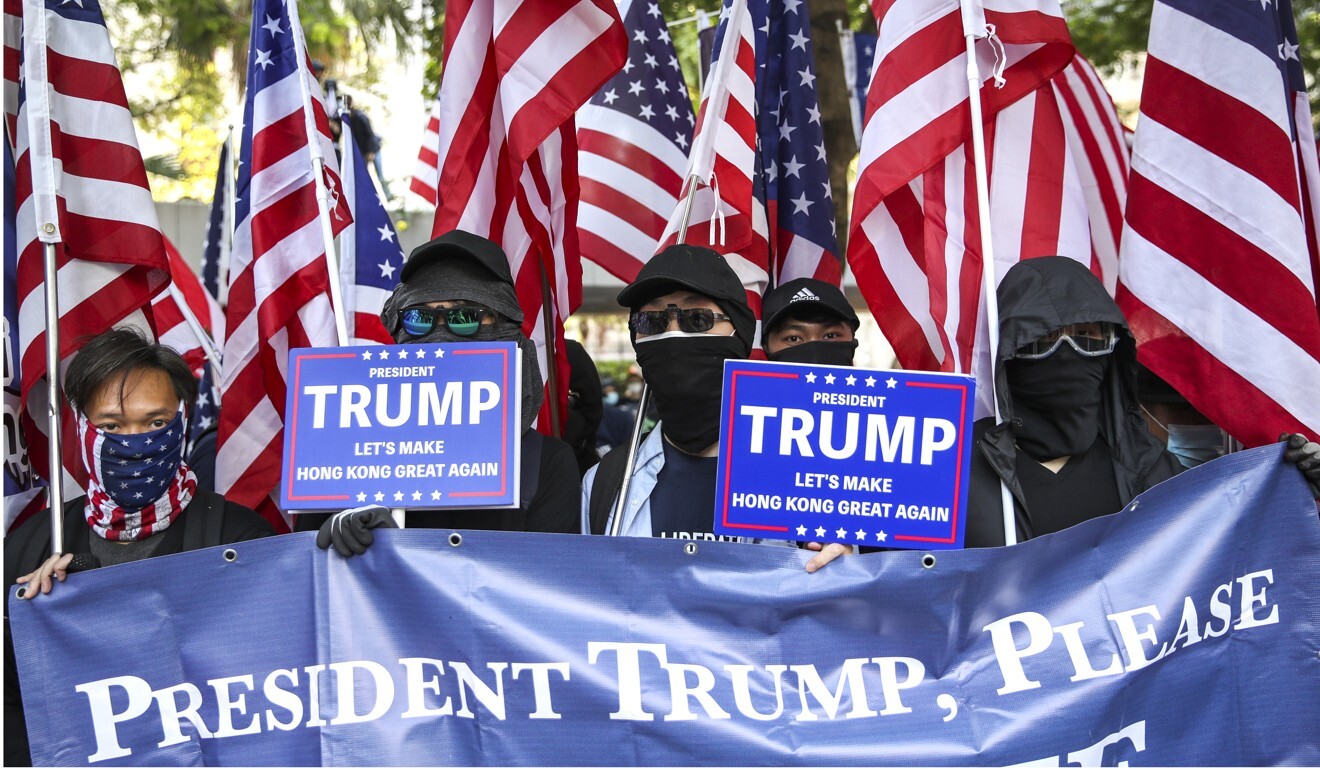
Explainer | How Hong Kong ended up a pawn in US-China battleground – and Washington’s next move
- Coming up next: President Donald Trump expected to issue order, choosing from an array of possible sanctions
- Hong Kong protesters who lobbied hard for US support welcome Secretary of State Mike Pompeo’s shock announcement
While protesters in Hong Kong cheered the US announcement, hoping it will force Beijing to abandon its hardline approach to the city, businessmen fear the impact on the city’s reputation as an international financial centre. This is what the American position means, how it came about, and its possible implications.
Why is the US taking a position on Hong Kong’s autonomy?
Both the US-Hong Kong Policy Act of 1992 and the Hong Kong Human Rights and Democracy Act of 2019 require the US Secretary of State to certify to Congress every year that the city retains sufficient autonomy from Beijing to justify preferential trading terms from Washington. The US announcement this week reflects Pompeo’s current assessment.

What did Pompeo cite as evidence of Hong Kong being no longer autonomous?
Pompeo had condemned the proposed law, saying it ignored the will of Hongkongers and would be a death knell for the high degree of autonomy Beijing promised under the Sino-British Joint Declaration, when Hong Kong was returned by Britain to China in 1997.
He said millions had protested against such violations of human rights and freedoms to no avail and instead of being listened to, they were tear-gassed and arrested en masse.
How have Beijing and the Hong Kong government reacted?
On Thursday, Beijing’s foreign affairs office in Hong Kong hit back at the “gangster logic” of the US, describing the threat of potential sanctions as an “utterly imperious” and “unreasonable and shameless” attempt to obstruct China’s planned national security law for the city.
It also accused the US of attempting to use the “Hong Kong model” to change the social system on the mainland and lambasted the Americans for applying double standards as its own national security legislation lacked transparency.
The US is waving Hong Kong’s trade status like an axe over our heads. If it means we have to submit to their wishes, then let it fall
What is the Hong Kong Human Rights and Democracy Act?
The Act expanded the annual reporting requirement to include assessments of the limits of Hong Kong’s autonomy – either self-imposed or due to action by Beijing – and whether ending the US’ special treatment would further erode the city’s autonomy.
It also gives the State Department discretion to punish anyone deemed responsible for acts that undermine Hong Kong’s autonomy – such as by imposing property and visa-blocking sanctions – and to direct its officers not to deny visas to individuals subjected to “politically motivated” arrests or detention in the city.

02:33
China’s top legislature approves national security bill for Hong Kong
How did the Hong Kong Human Rights and Democracy Act come about?
The Hong Kong government was determined to go ahead with passage of the bill, but there were violent clashes between protesters and police outside the legislature that day. Violent anti-government protests continued through the second half of last year, even after the extradition bill was withdrawn.
Local pro-democracy leaders and protest figures appealed to the US to help protect Hong Kong from Beijing’s increasingly hard line against the city and its freedoms.
Against the backdrop of souring US-China relations and social unrest in the city, the Hong Kong Human Rights and Democracy Bill won bipartisan support and took only five months to go from being passed by the US Congress and Senate to being signed into law by President Donald Trump in November.
The speed was remarkable, considering a mere 5 per cent of bills introduced in the US Congress end up being voted on, let alone approved and sent to the president.

Why do Hong Kong protesters support the US action?
Protesters actively lobbied the Trump administration and US politicians in 2019 to pass the Hong Kong Human Rights and Democracy Act to put pressure on the city’s leadership and Beijing. They did so at rallies, through an online campaign, and notably via Twitter, making open appeals to US politicians.
Demosisto, a group led by activist Joshua Wong Chi-fung, alongside the Washington-based Hong Kong Democracy Council (HKDC), spearheaded lobbying to get the bill passed. Founded last September, HKDC’s managing director is Samuel Chu, the younger son of Reverend Chu Yiu-ming, a co-founder of the Occupy movement.
On December 1, after Trump signed the bill into law, hundreds of protesters joined a “Thank you, US” rally in the city. At this and other rallies, protesters waved the American flag. Their actions angered Beijing, which felt that Hongkongers were inviting foreign interference in the city’s affairs.
Protesters acknowledged the Act might adversely affect the city’s economy, but argued it was an effective tool to put pressure on the authorities.
It reflected their strategy of laam caau, a Cantonese colloquialism that means “if we burn, you burn with us”. As a protester said at the December rally: “If we don’t keep a public discourse going and gain international support, those in power will not change their mind.”
Earlier this month, the Chinese-language newspaper Apple Daily, founded by media mogul Jimmy Lai Chee-ying, launched a #TrumpSavesHK campaign on its front page, encouraging Hongkongers to write to the US president about Beijing’s proposed national security law.

What happens next?
Following Pompeo’s announcement, the White House must now determine the next move. David Stilwell, assistant secretary of the Bureau of East Asian and Pacific Affairs at the State Department, described it as a “one-two action”.
Sources in Washington expect Trump to issue an executive order on sanctions within days, with the possibility of declaring Hong Kong as a national emergency under the International Emergency Economic Powers Act. This law allows the president to impose wide-ranging economic penalties on individuals or countries deemed related to “any unusual and extraordinary threat” to the US.
If Trump did that, a source said, it would indicate that more immediate actions, including sanctions, would be taken in the short term.
Trump can choose to impose a variety of sanctions, but local politicians across the spectrum believe it unlikely that Hong Kong will lose all preferential treatment.
It is generally believed that any sanctions imposed will be targeted at individuals – officials or politicians deemed to have violated human rights in Hong Kong – and include banning the export of sensitive American technology to Hong Kong.

Joshua Wong, citing his sources, said it was unlikely the public would be adversely hit on issues such as visas, but those “serving the interests of Beijing” may be more affected.
Pro-establishment veteran Martin Liao Cheung-kong said the US reaction was to be expected, and Washington’s only play now would be to scrap Hong Kong’s special trade status.
US set to go it alone over Hong Kong as other nations sidestep hard line
While all sides were bound to be hurt financially by US-China conflict, he questioned whether China and Hong Kong had much to lose.
“The US is waving Hong Kong’s trade status like an axe over our heads. If it means we have to submit to their wishes, then let it fall,” he said.
The city’s direct trade with the US is relatively small, exporting just US$431 million in goods to America in March, according to US Census data, and importing US$2.4 billion in return. The city’s access to sensitive technology could also be affected.
But in return, US companies operating in Hong Kong could also be adversely affected by the fallout. China could also retaliate through other means, observers said.
Many believed positions on both sides were likely to harden rather than ease in the coming months.

